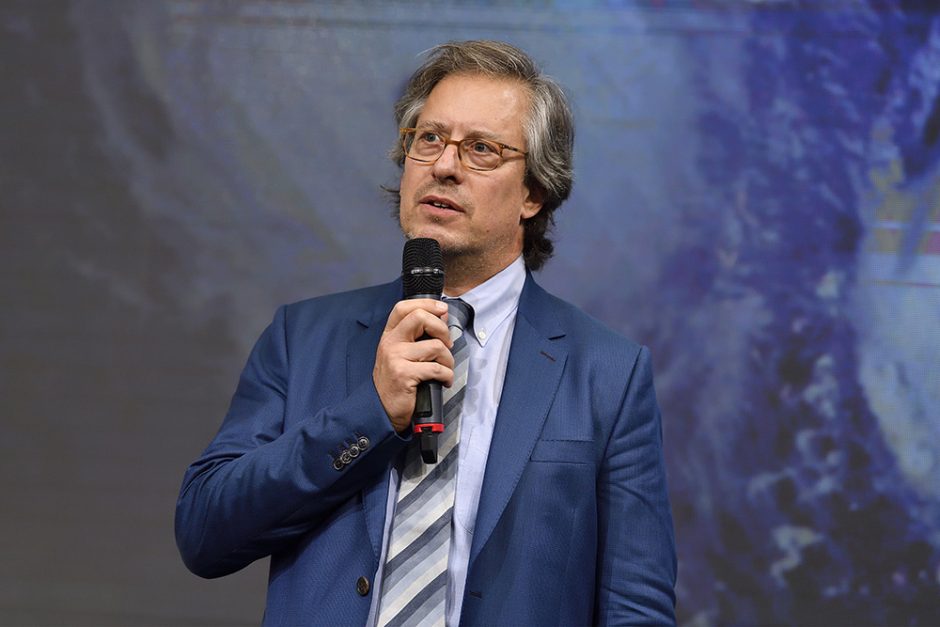Interview about Futures Literacy with Riel Miller, Head of Foresight at UNESCO

For over thirty years Riel Miller has been pioneering advances in the theory & practice of using the future in order to change what people see and do. We caught up with Riel Miller to talk about climate action and how it relates to futures literacy.
What does it mean to be “futures literate”?
Being future literate means understanding that there are different anticipatory systems. These are different ways for us to imagine the future and different reasons for imagining the future. The basic proposition is that the future can only be imaginary. We need to understand why and how our imagination created images of the future, relying on assumptions or frames. So, in order to describe something that does not exist, we first assume that it will exist, then make assumptions about it and finally try and project an image into the future. These images are related to many elements including hope and fear.
How does it matter in relation to climate change?
The relation to climate change is obvious, meaning that the IPCC has generated an image of the future, on the basis of a certain methodology and with a certain purpose: warning or planning. Being future literate allows us to understand that the IPCC and the whole image of climate change is one way of imagining the future. This one way of imagining the future is not necessarily the best way of imagining other parts of the future, particularly when dealing with complex, emergent and evolutionary systems like human systems, or any other biological systems for that matter. So, when we think about climate change, we need to be able to think about the future in many different ways. That is what futures literacy is about.
How can futures literacy impact the financial system?
The financial system at its very root is a temporal system meaning that finance is about time. Value is a speculation; an assumption that for instance money or gold will be worth something in the future, or that our skills, our human capital, has value in the future. The financial system reduces it to money but the question of value is the more basic question: “how do we project value through time”? Here, the financial system uses different anticipatory systems, in another words, it uses elements such as the discount rate to imagine the future. So, the idea of futures literacy is that the financial system, just like with climate change, could potentially be much more aware of the anticipatory system it uses and also diversify the anticipatory systems that it uses. That would allow the financial system to be more in tune with complexity and uncertainty as opposed to now, where it is essentially oriented towards risk, which is already one specific way of imagining the future.
What do participants experience at a Futures Literacy Laboratory?
When you ask people to learn a new skill, they need to be aware that they do not have that skill. In a Futures Literacy Laboratory, people get the opportunity to use the future through a learning by-doing process, this allows them to begin to understand that they might in fact not even have considered how they think about the future, so this is the first step towards becoming futures literate. Another thing that happens, and this is what creates the motivation but also some premature expectations, is that the participants generally talk about an issue they care about: the future of their community, or the future of water, or the future of a country. And because they are thinking about it, using different ways of imagining their future, people are exposed in a structured, systematic and cumulative way to different ways of thinking. Participating in a lab requires a lot of work because one has to design it properly. It is like any good scientific laboratory; it tests hypotheses, it generates experiments and it needs to be designed in ways that are rigorous and produce discernible and understandable results.
What or who gives you hope or inspiration in the fight against climate change?
Climate change is inciting people to think differently. This is not the same as being told by some political leader that you should think differently because this will bring you to a better world. We are being asked to think about the way we relate to the world around us and to think about transition and transformation in ways that are not based on self-interest of a particular party or elite. So the combination of a realisation that we cannot solve old problems with old methods; that the problem is something that requires us to change in ways that are profound, and that we are discovering things like the importance of anticipation and futures literacy all point, in my view, to a transformation potential.
